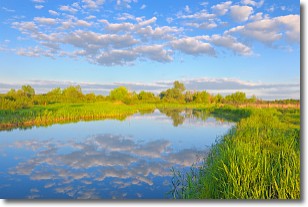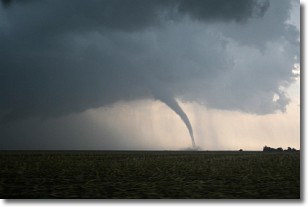Weather Alert in Illinois
Flood Warning issued April 24 at 9:34AM CDT until April 25 at 5:48PM CDT by NWS Lincoln IL
AREAS AFFECTED: Clay, IL; Richland, IL
DESCRIPTION: ...The Flood Warning is extended for the following rivers in Illinois... Little Wabash River below Clay City affecting Clay and Richland Counties. .The following forecasts are based on observed precipitation, soil moisture conditions, and forecast precipitation. * WHAT...Minor flooding is occurring and minor flooding is forecast. * WHERE...Little Wabash River below Clay City. * WHEN...Until tomorrow afternoon. * IMPACTS...At 19.7 feet, Mayflower Road...just north of U.S. Route 50...begins to flood. * ADDITIONAL DETAILS... - At 8:45 AM CDT Thursday the stage was 19.5 feet. - Recent Activity...The maximum river stage in the 24 hours ending at 8:45 AM CDT Thursday was 19.9 feet. - Forecast...The river is expected to fall below flood stage late tomorrow morning and continue falling to 10.4 feet Tuesday morning. - Flood stage is 18.0 feet. - http://www.weather.gov/safety/flood
INSTRUCTION: Persons with interests along this river need to remain aware of the latest forecasts and associated flood risk for their area. Stay tuned for further updates on this flooding situation. Additional information is available at www.weather.gov.
Want more detail? Get the Complete 7 Day and Night Detailed Forecast!
Current U.S. National Radar--Current
The Current National Weather Radar is shown below with a UTC Time (subtract 5 hours from UTC to get Eastern Time).

National Weather Forecast--Current
The Current National Weather Forecast and National Weather Map are shown below.

National Weather Forecast for Tomorrow
Tomorrow National Weather Forecast and Tomorrow National Weather Map are show below.

North America Water Vapor (Moisture)
This map shows recent moisture content over North America. Bright and colored areas show high moisture (ie, clouds); brown indicates very little moisture present; black indicates no moisture.

Weather Topic: What are Stratocumulus Clouds?
Home - Education - Cloud Types - Stratocumulus Clouds
 Next Topic: Stratus Clouds
Next Topic: Stratus Clouds
Stratocumulus clouds are similar to altocumulus clouds in their
fluffy appearance, but have a slightly darker shade due to their additional mass.
A good way to distinguish the two cloud types is to hold your hand out and measure
the size of an individual cloud; if it is the size of your thumb it is generally
an altocumulus cloud, if it is the size of your hand it is generally a
stratocumulus cloud.
It is uncommon for stratocumulus clouds to produce precipitation, but if they do
it is usually a light rain or snow.
Next Topic: Stratus Clouds
Weather Topic: What are Wall Clouds?
Home - Education - Cloud Types - Wall Clouds
 Next Topic: Altocumulus Clouds
Next Topic: Altocumulus Clouds
A wall cloud forms underneath the base of a cumulonimbus cloud,
and can be a hotbed for deadly tornadoes.
Wall clouds are formed by air flowing into the cumulonimbus clouds, which can
result in the wall cloud descending from the base of the cumulonimbus cloud, or
rising fractus clouds which join to the base of the storm cloud as the wall cloud
takes shape.
Wall clouds can be very large, and in the Northern Hemisphere they generally
form at the southern edge of cumulonimbus clouds.
Next Topic: Altocumulus Clouds
Current conditions powered by WeatherAPI.com




